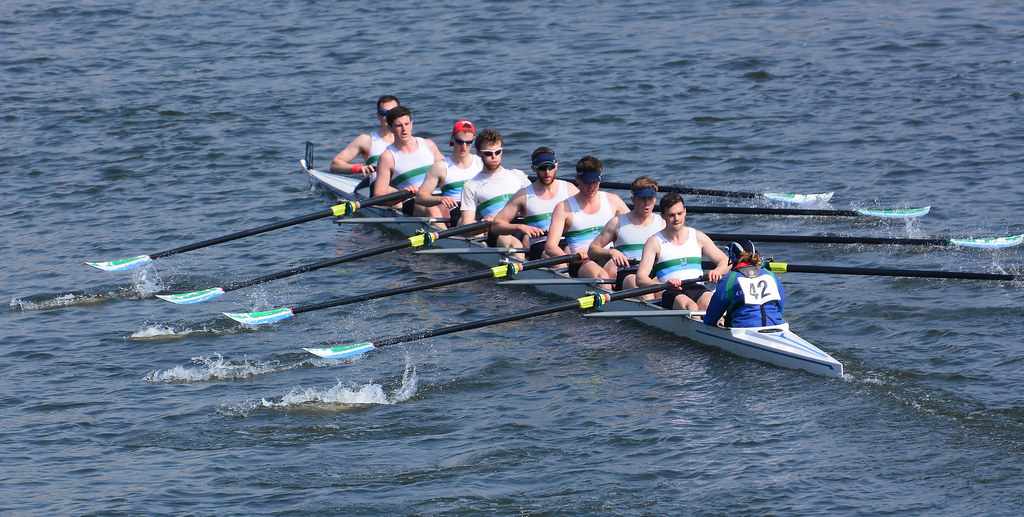Winning well, but not at all costs: Why Canada urgently needs a new vision for sport

Athletes from almost every national sport organization in Canada are rising up in hurt and anger to denounce toxic cultures of abuse, negligence and discrimination.
Athletics, artistic swimming, gymnastics, rugby, bobsled, hockey, soccer and rowing are banding together to demand a respectful, healthy and inclusive sport system for all. Athletes from all over the country are calling on sport leaders to make a systemic change.
While I am encouraged that Canada’s sport minister, Pascale St-Onge, is mandating that sporting organizations follow the new independent third-party auditing process and explore better oversight frameworks, it’s not enough. As an athlete and sport researcher, I believe we need to move beyond talks, round tables and task forces, toward a positive vision for sport in Canada; something to fight for, not just fight against.
The sport-centric model
When I was rowing for Canada in the 1980s and ‘90s, sport faced a similar crisis in the form of doping. At the 1988 Olympics, women’s rowing saw the Eastern Bloc countries win all but two of the 18 medals on offer — a virtual clean sweep of the medals, though hardly “clean.”
After several sixth and seventh place finishes, we knew we would need to shift our mindset in order to compete in this new performance-enhanced arena. We began by placing sport at the centre of our shared purpose: performance not podiums; a gold medal time-standard, not a gold medal.
The goal of rowing is not to have greater muscle mass, size or strength than your competitor, but greater speed. Once optimal speed became our shared purpose, we formed a true partnership with our coaches, administrators, sport science practitioners and competitors. We were all seen as equals — the key to a psychologically safe environment where all are free to be, contribute, learn and challenge one another.
With partnership came a more global perspective of sport. Speed in rowing can only be achieved by harnessing synchrony, power, rhythm, balance and diversity. Optimal speed, like any optimal achievement, is the pursuit of beauty and excellence for the greater good of humanity and the world.
With human and social development at our centre, we had to be caring of ourselves and one another, open to innovation, inclusive of newcomers with potential, aligned in our focus, trusting in our process and committed to our relationships, our community and our sport.
We went on to win multiple gold medals at the 1992 Olympics in a sport still rife with doping. We emerged as leaders in our community and still remain intact as a crew.
Members of the 1992 team inspired our 2021 Tokyo gold in the women’s eight to lean on the same core principles: common goals, communication, clarity and respect. This is a blueprint for what sport can be in Canada.
Sport is the solution
As an educator and leadership and communication scholar, I work to identify the organizational mechanisms that ensure quality sport experiences in order to leverage the full benefits of sport for society. I have always found truth in sport.
Our research team, composed of professors and graduate students from Royal Roads University and University of Victoria, has found that sport holds the solution to its own problems.
We propose a partnership model for sport in Canada that places “optimal sport experiences” at the centre of decision making, addresses the power imbalance at the root of abuse and offers a blueprint for cultural and organizational change that shifts the focus from podiums to performances.
Our goal is to return sport to its rightful place in society as a source for human and societal growth and development. We recommend concrete strategies for organizational and procedural change, such as expanding measures of success to include leadership impact, physical and psychological health and safety, as well as performance outcomes.
Cultural integrity depends on embedding the principles of human and social health and development within all organizational texts, practices and behaviours. Achieving power balance in sport thus relies on transparent information sharing, explicit selection criteria, role clarity and expectations and published accountability frameworks.
Canadian sport is missing the point
Sport in Canada is missing the point: the purpose of sport is human and social development, not medals. Sport is a partnership, not a battle, and competition is collaborative, not zero sum. After all, the Latin derivative for competition is competere or strive together.
Sport has the greatest participation and support of any human endeavour in the world and therefore can have the greatest impact on human development. Good sport benefits athletes, sporting organizations and society at large.
A sport-centric model in Canada would make an optimal sport experience our shared purpose, balancing power across our system. From little leagues to beer leagues to professional leagues, when human and social development is the focus of sport, health, joy, community and success are the natural outcomes.
This article was originally posted on Winning well, but not at all costs: Why Canada urgently needs a new vision for sport







